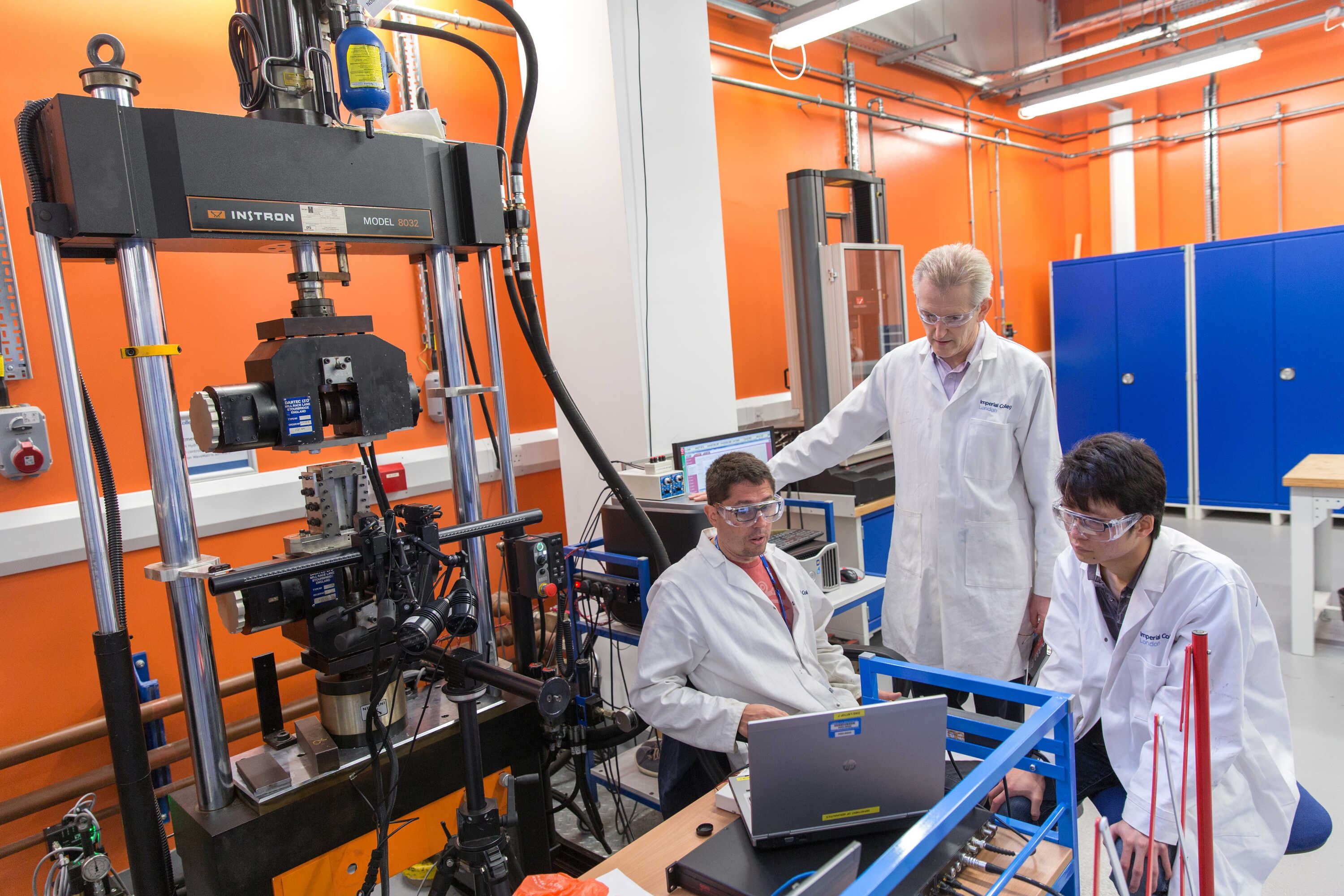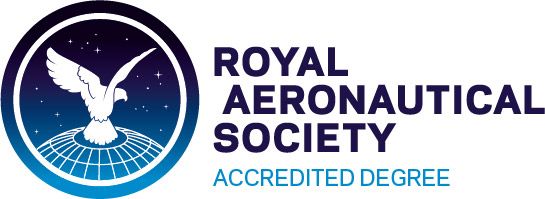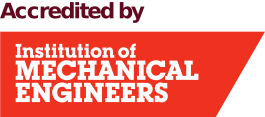
Composites – the Science, Technology and Engineering Application of Advanced Composites
Explore how high performance composite materials are increasingly important in the production of aircraft.
Explore how high performance composite materials are increasingly important in the production of aircraft
Get industry recognition by achieving an accredited degree, awarded on behalf of the Engineering Council
Learn from academic and industry experts, major aerospace companies and government research organisations
Course key facts
Qualification
MSc
Duration
1 year
Start date
September 2025
Study mode
Full-time
-
Fees
£18,500 Home
£42,900 Overseas
Delivered by
Location
-
South Kensington
-
Minimum entry standard
2:1 in Aeronautical Engineering, Mechanical Engineering, Materials Science, Physics or Chemistry
Course overview
Explore the broad field of advanced composites in this professionally accredited degree, taught by experts in the field from the College, other universities, major aerospace companies and government research organisations.
You'll examine the manufacturing and characterisation of composites and engineering design, with new aircraft and other challenging engineering applications increasingly dependent upon the unique capabilities of high performance composite materials.
Over the 12 months of the course, you'll develop an outstanding knowledge in this subject area, on a programme renowned as one of the primary providers of postgraduate education in composite materials in Europe.
Learn about the mechanical performance of composite materials and consider the costs, ease of fabrication, durability, and other factors which impinge on creating viable industrial products.
Carry out your studies and research in the department's cutting edge laboratories and workshops, with numerous technicians on-hand to support you when using the equipment and software.
Structure
This page is updated regularly to reflect the latest version of the curriculum. However, this information is subject to change.
Find out more about potential course changes.
Please note: it may not always be possible to take specific combinations of modules due to timetabling conflicts. For confirmation, please check with the relevant department.
Prior to starting your studies, you’ll be provided with access to pre-sessional modules exploring key topics covered on this course.
Pre-study
Refresh yourself on the basics of stress analysis and learn about common stress analysis techniques.
Become familiar with the fundamentals of finite elements analysis.
Revise essential mathematics over a series of lectures.
Learn about the scientific programming tools and languages required to perform numerical computation.
Appreciate the basic elements of fluid flow on this self-taught module.
Professional accreditation
This degree is accredited by the following organisations on behalf of the Engineering Council:
- Royal Aeronautical Society (RAeS)
- Institution of Mechanical Engineers (IMechE)
- Institution of Materials, Minerals and Mining (IOM3)
Achieving a professionally accredited integrated Master's means that you have satisfied the first step to becoming a Chartered Engineer (CEng) in your chosen field by meeting the educational requirements of professional registration. To gain Chartered status, you will need to demonstrate your ability to meet additional graduate level competencies described in the Engineering Council's UK-SPEC.
A CEng is a highly respected qualification earned by professionals working in engineering, which can lead to higher earning potential and better career prospects.
Professional registration also brings international recognition of your qualification, which is particularly useful for students preparing for a career abroad.
Our accreditation agreements with RAeS and IMechE are renewed every five years. The RAeS and IMechE accreditation agreements last until the 2024-25 academic year intake.
Teaching and assessment
Teaching and learning methods
-
Lectures
-
Tutorials
-
Lab work
-
Virtual learning environment
-
Independent study
-
Lecture recordings
-
Research project
Balance of assessment
Key
- Coursework
- Exams
- Practical
- 45% Coursework
- 30% Exams
- 25% Practical
Assessment methods
-
Written exams
-
Presentations
-
Written reports
Entry requirements
We consider all applicants on an individual basis, welcoming students from all over the world.
2:1 in Aeronautical Engineering, Mechanical Engineering, Materials Science, Physics or Chemistry.
How to apply
Apply online
You can submit one application form per year of entry. You can choose up to two courses.
Find out more about how to apply for a Master's course, including references and personal statements.
There is no application fee for MRes courses, Postgraduate Certificates, Postgraduate Diplomas, or courses such as PhDs and EngDs.
If you are applying for a taught Master’s course, you will need to pay an application fee before submitting your application.
The fee applies per application and not per course.
- £80 for all taught Master's applications, excluding those to the Imperial College Business School.
- £100 for all MSc applications to the Imperial College Business School.
- £150 for all MBA applications to the Imperial College Business School.
If you are facing financial hardship and are unable to pay the application fee, we encourage you to apply for our application fee waiver.
Unless you are from an exempt nationality, you will need an ATAS certificate to obtain your visa and study this course.
Nationals from the following countries are exempt: Switzerland, Australia, Canada, Japan, New Zealand, Singapore, South Korea, USA and EEA members.
Use this information when applying for an ATAS certificate to study this course:
- CAH code: CAH10-01-04
- Descriptor: Aeronautical and aerospace engineering
- Supervisor name: Professor Spencer Sherwin
Get guidance and support for obtaining an ATAS certificate.
Fees and funding
Home fee
2025 entry
£18,500
You should expect and budget for your fees to increase each year.
Your fee is based on the year you enter the university, not your year of study. This means that if you repeat a year or resume your studies after an interruption, your fees will only increase by the amount linked to inflation.
Find out more about our tuition fees payment terms, including how inflationary increases are applied to your tuition fees in subsequent years of study.
Whether you pay the Home or Overseas fee depends on your fee status. This is assessed based on UK Government legislation and includes things like where you live and your nationality or residency status. Find out how we assess your fee status.
If you're a UK national, or EU national with settled or pre-settled status under the EU Settlement Scheme, you may be able to apply for a Postgraduate Master’s Loan from the UK government, if you meet certain criteria.
For courses starting on or after 1 August 2024, the maximum amount is £12,471.
The loan is not means-tested and you can choose whether to put it towards your tuition fees or living costs.
How will studying at Imperial help my career?
This MSc is highly sought after by employers in design, research, development, manufacturing, and management.
A wide range of sectors will value your knowledge.
Common career paths include the aerospace, motorsport, marine and offshore sectors.
Other potential career paths to consider include the sporting goods industry and civil engineering.
Further links
Contact the department
- Telephone: +44(0) 20 7594 5066
- Email: aero.msc-admissions@imperial.ac.uk
Course Director: Dr Emiliano Bilotti
Visit the Department of Aeronautics website.
.jpg)
Request info
Find out more about studying at Imperial. Receive updates about life in our community, including event invites and download our latest Study guide.

Events, tasters and talks
Meet us and find out more about studying at Imperial.

Terms and conditions
There are some important pieces of information you should be aware of when applying to Imperial. These include key information about your tuition fees, funding, visas, accommodation and more.
You can find further information about your course, including degree classifications, regulations, progression and awards in the programme specification for your course.
Programme specifications

